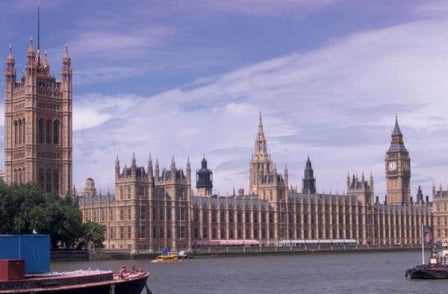
The Liberal Democrats have tabled a new Save Our Sources law which is set to be put to a vote in the House of Commons on 23 February.
The amendment to the Serious Crime Bill proposes altering the Regulation of Investigatory Powers Act to ensure that police officers can no longer view journalists’ phone records without the approval of a judge.
The law change enacts a recommendation made by the Interception of Communications Commissioner’s Office in its report on police surveillance of journalists published on 4 February.
In the wake of the report, which was prompted by the Press Gazette Save Our Sources campaign, both the Prime Minister and Home Secretary promised action to ensure judicial oversight of police requests to view journalists’ call records.
Number 10 initially briefed that no action would be taken before the general election in May. But on 5 February, Culture Secretary Sajid Javid told a journalists’ lunch that he wanted to see the law changed this Parliament.
Press Gazette understands that amending the Serious Crime Bill, which goes to the House of Commons for its report stage on 23 Ferbruary (near the end of its passage through Parliament), may be the last opportunity to change the law on this issue before the election.
Deputy Prime Minister Nick Clegg wrote to Home Secretary Theresa May on 4 February urging her to bring forward an amendment on this issue.
But so far there has been no response to Clegg.
He said:
As you know, I have consistently raised my concerns about the protection of journalists' sources in relation to acquisition of communications data under the Regulation of Investigatory Powers Act.
The report published today by the Interception of Communications Commissioner recommends that "judicial authorisation must be obtained in cases where communications data is sought to determine the source of journalistic information".
We have an opportunity to act on this recommendation at Report Stage of the Serious Crime Bill in the Commons on 23 February. I hope that you will look urgently at drafting government amendments to that effect.
Julian Huppert MP (Lib Dem), who is proposing the amendment, notes that the issue has already been debated in the House of Lords (via another amendment which was rejected by the Government in October). And he said that as it acts on a recommendation from the Interception Commissioner’s report, the Government cannot say that the issue has not been given sufficient consideration.
If the Government didn’t support the amendment, he said, “it would fly somewhat in the face of their public comments that they want to get this sorted in this Parliament”.
Noting the IOCCO report revealed police had obtained the phone records of 82 journalists in the last three years to find out their sources, he said: “I was really surprised [at the extent] and that’s one of the reasons we have to fix it urgently.”
Praising the role of the Press Gazette Save Our Sources campaign in highlighting this issue, he said: “It’s been a fantastic campaign. It has really made a difference.”
The amendment proposes changing the Regulation of Investigatory Powers Act to say that police officers must apply in writing to a circuit judge for permission to view journalists' telecoms data. The judge must consider the public interest in “protecting the confidentiality of journalists’ sources” in weighing whether to approve the application.
Former Lib Dem MP Evan Harris, who was involved in drafting the amendment, said: “We are simply not prepared to let inertia stop this from happening.”
He noted that publication of the Anderson Review of RIPA has now been pushed back until after the general election – into the “long grass”.
He said of the new amendment: “It doesn’t tackle every potential reason why privileged information might be sought but it deals with police seeking it for the purposes of preventing or detecting crime, which is the issue raised by the Save Our Sources campaign."
A spokesman for the Deputy Prime Minister said: "Nick Clegg has consistently said the accessing of the source of journalistic information it should be signed off by a judge.
"He welcomes the recent conversion to this point of view by Conservatives, including most recently the Culture Secretary.
"He sees no reason whatsoever that this shouldn't be addressed as a matter of urgency by the Coalition Government.
"There is no point in waiting around. There is a suitable piece of legislation where this can be done and he will be making the case in government for this to be addressed in the Serious Crime Bill, either through Julian's amendment or alternative government amendments."
Asked for a comment on this latest development a spokesman for the Home Office said: "A free press is fundamental to a free society.
“The Government has accepted in full the recommendations of the Interception of Communications Commissioner and we are determined to implement them as soon as is legally possible."
Email pged@pressgazette.co.uk to point out mistakes, provide story tips or send in a letter for publication on our "Letters Page" blog
